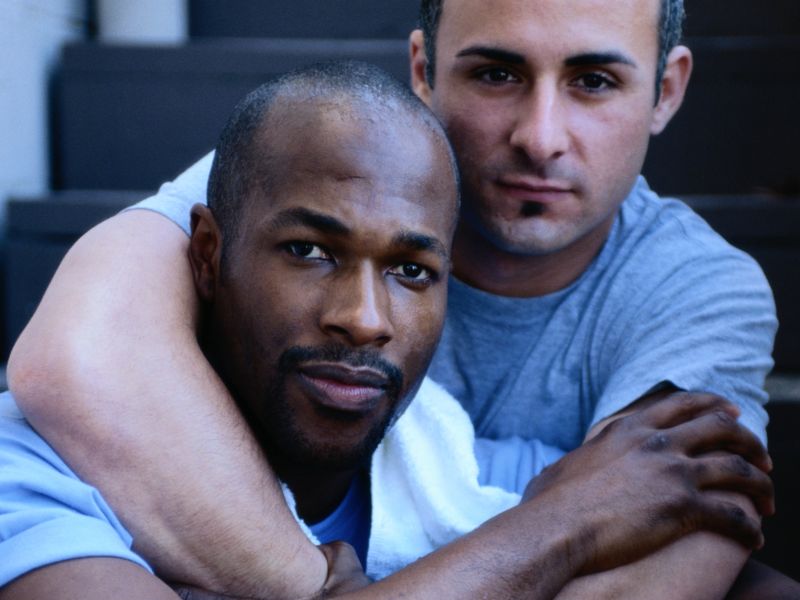Manténgase sano!

- Robert Preidt
- Posted February 20, 2020
Gay Men Underestimate Their Risks From HPV
Young men who have sex with other men don't fully grasp their risk for human papillomavirus (HPV) infection, due to a lack of information from health care providers, researchers say.
Interviews with men in their early 20s who are gay, bisexual or who identify as straight but have sex with men found that they knew little about HPV, including how it is transmitted, its symptoms and how it contributes to cancer risk.
These men also placed little importance on HPV vaccination, mistakenly believing that HPV mainly or only affects women, according to the study published recently in the Journal of Community Health.
HPV is a sexually transmitted disease that can cause several types of cancer, including cancers of the anus and penis. It's of particular concern for gay and bisexual men due to their high rates of smoking and HIV (the virus that causes AIDS), and the overall low HPV vaccination rates among men, the researchers explained.
The study also found that health care providers rarely discuss HPV and the HPV vaccine with young men. Even when they do, providers often fail to adequately explain the potential risks of HPV and the benefits of vaccination.
"Particularly in light of the decades-long focus on gay men's health care as HIV care, there is a missed opportunity for HPV prevention in the community," said study co-author Caleb LoSchiavo, a doctoral research assistant at the School of Public Health at Rutgers University in Piscataway, N.J.
According to lead study author Jessica Jaiswal, "Clinicians have a direct role in expanding the availability of LGBTQ-competent health care." Jaiswal is a postdoctoral fellow affiliated with Rutgers' Center for Health, Identity, Behavior and Prevention Studies (CHIBPS).
"By learning about sexual minority men's diverse health needs and routinely offering the HPV vaccine, we can move toward a health promotion model and not only a disease prevention model," she added in a Rutgers news release.
About 79 million Americans have HPV, with about 14 million new cases each year, according to the U.S. Centers for Disease Control and Prevention.
Perry Halkitis, director of CHIBPS, said it's important for everyone to learn about HPV.
"Everyone who is sexually active -- regardless of gender, sexual orientation, partners' genders, relationship or marital status -- should talk to their doctor about receiving the HPV vaccine to prevent a future generation who may develop HPV-related cancers, such as cervical, oral and anal cancer, as we have seen emerging in baby boomers and Gen-Xers," he said.
More information
The U.S. Centers for Disease Control and Prevention has more on HPV.
SOURCE: Rutgers University, news release, Feb. 11, 2020
